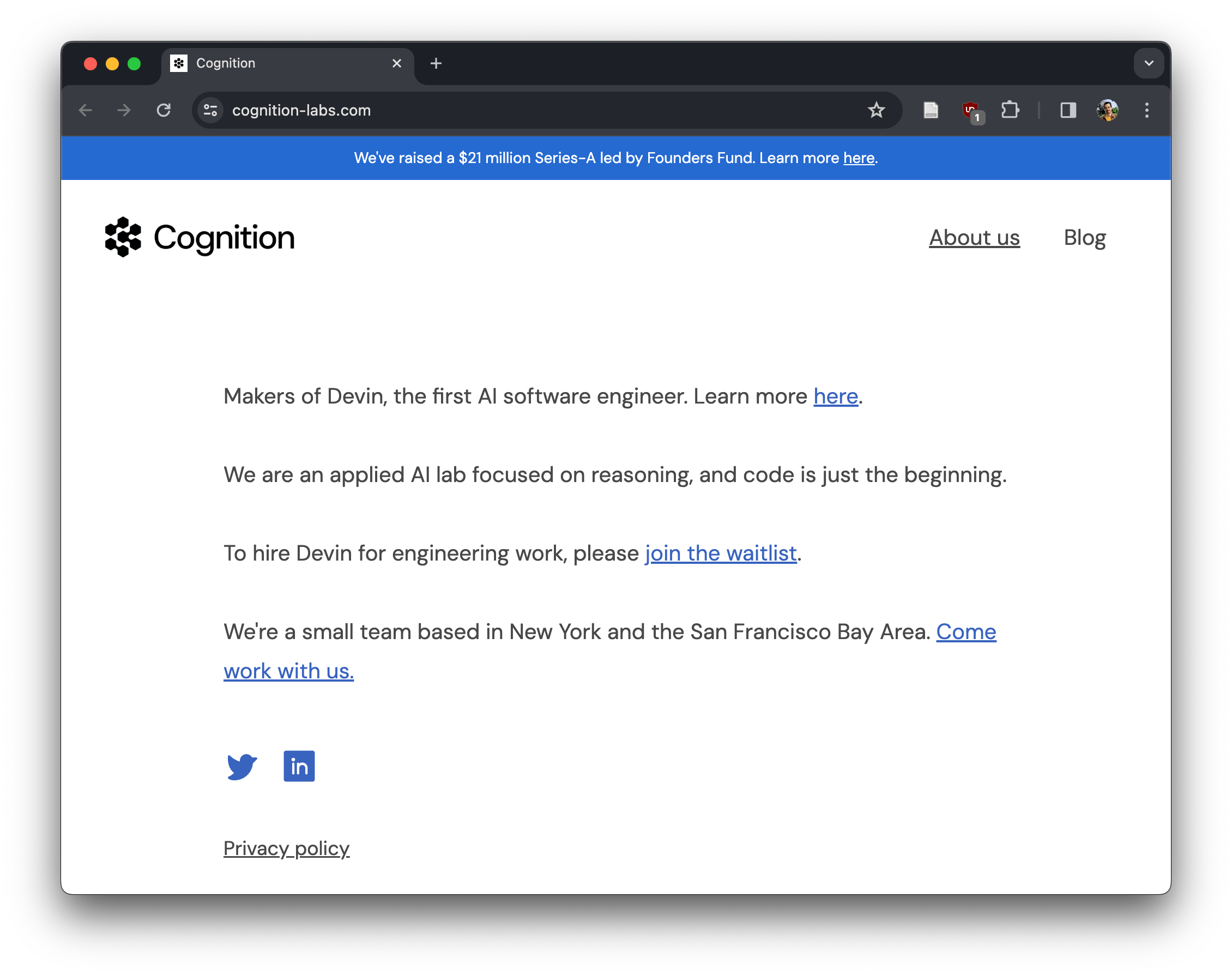First, a note for Portuguese readers. Portugal incorporated EN 301 549 that stipulates all public sector and NGO websites must fulfil the web standards for accessible content. The deadline is this year.
This edition will be a bit different because as I started writing I kept finding more that needed to be said.
This past week, every conversation I had was either about our elections or AI. A right-wing party had 12 seats in parliament and now has 48. This worrisome result came from those who used to abstain from voting.
From the AI side of things, I have found people struggling to get actual gains from using ChatGPT or other mainstream tools.
Is AI The New Blockchain?
I was catching up with a friend who is an innovator at heart and we disagreed about how Web 3, or the blockchain, is doing. He holds faith, I believe it lost its shine. We both agree that the way Bitcoin keeps fluctuating and even reaching new highs indicates adoption by a public.
Molly White sarcastically says that Web3 is Going Great. Her website collects a timeline of news about scams, phishing attacks, bugs, and hacks, around blockchain implementations.
For me, the blockchain is a technology that is still a solution looking for a problem to solve. And I consider myself to have been an optimistic supporter of Bitcoin and Ethereum. Now I believe Blockchain rode the hype and now refuses to go away.
AI took over the hype with unprecedented speed, and the number of tools claiming to use AI followed suit. But which are actually innovations and which are just a frontend for the #OpenAI API1?
I’ve been hearing from friends and clients that they find these new tools but are unable to get value from them. The output is average, the process of copying and pasting to and from ChatGPT is time-consuming. More technical friends have integrated AI into their pre-existing workflows.
Unlike Blockchain, AI does solve specific problems. However, it seems to be worsening the digital literacy gap with companies struggling to create consumer-grade solutions for everyday tasks.
In the same way as the blockchain, money is pouring into startups developing AI software. Elicit, which has a great product, managed to raise 9 Million USD. On the other hand, Cognition Labs announced Devin, the first AI Software Engineer. Their website states they raised 21 Million USD.

I’ve only seen the demo video for Devin and don’t have grounds to form an opinion. It simply reminded me of the AutoGPT demonstration that made the rounds around April 2023.
My optimism toward AI remains strong despite the hype, the lack of good consumer-grade uses, and the over-the-top investment. Be warned that I was also very optimistic about Web3 so I am just waiting to be wrong.
And while Web3 has Molly White, AI has Gary Marcus. I follow his writing because it grounds me to the caveats in AI.
In his last substack post, Gary expressed concern over the increasing use of Generative AI in scientific research and publications, suggesting it may be compromising the quality and integrity of science.
I would go further and say that the quality and integrity of science have been under fire for some time now. AI is just making it worse.
And from my side, the Gregory AI team is doing what we can to filter out relevant scientific research and help advance medicine.
Is AI going down the same path as the Blockchain? I don’t think so but we are making the same mistakes.
- AI is a technology that can speed up the development of software and production of content, it’s not a done task with the press of a button. (Blockchain is a database to store immutable data)
- Investors are putting too much money into vapourware 2.
- Less scrupulous content creators are using AI to generate content. (Others used the Blockchain and Non-Fungible Tokens (NFTs) to create art that sold for thousands)
- #OpenAI’s services are biased3. (And the Bitcoin network is controlled by a subset of “miners”4)
- Etc.
There is one important difference. This time, the technology is being backed by companies like Microsoft, Meta, Google, and a few other giants. They don’t need to worry about a lack of resources, and if a small company does make a breakthrough they can try to assimilate it.
What does the future hold? The best-case scenario is one where AI flattens the learning curve for less technical people. The worst is one where the top companies control our access to AI services and we struggle to tell what is real from what is AI generated.
We are at the top of the Hype Curve and the disillusion with AI has barely begun, so I am going to stay hopeful.
Your AI tools for this week
https://julius.ai/, Analyze your data with computational AI.
https://osum.com/, Cut research time from weeks to seconds
https://www.veed.io/, AI powered video editor.
API stands for Application Programming Interface and is used so that different systems can communicate. OpenAI offers paid access to their API. ↩︎
Software or hardware that has been advertised but is not yet available to buy, either because it is only a concept or because it is still being written or designed. ↩︎
ChatGPT is multilingual but monocultural, and it’s learning your values ↩︎
“According to the National Bureau of Economic Research, at one point in October 2021, 10% of the miners controlled 90% of the Bitcoin network, and .01% controlled about 50% of the network. 50% is all that is needed to take control of the network. Even today, it’s likely the same few dozen miners that have dominated bitcoin mining for years, even though many have been routed by the bear market.” CoinDesk Consensus Magazine. ↩︎

